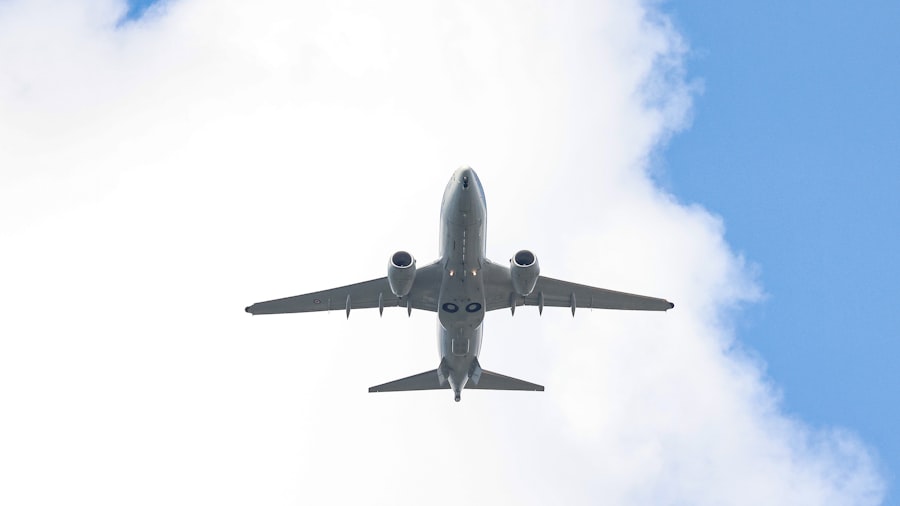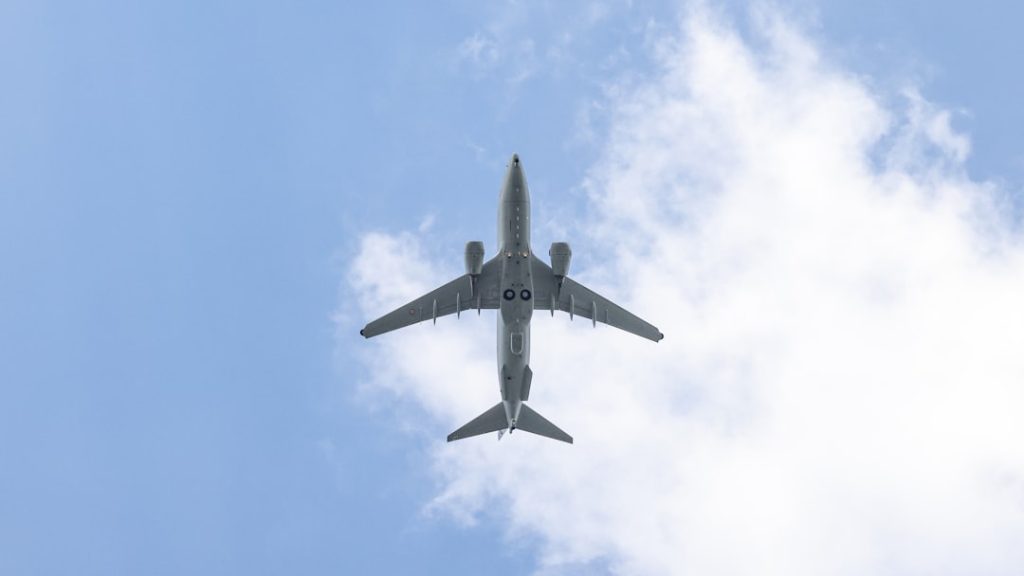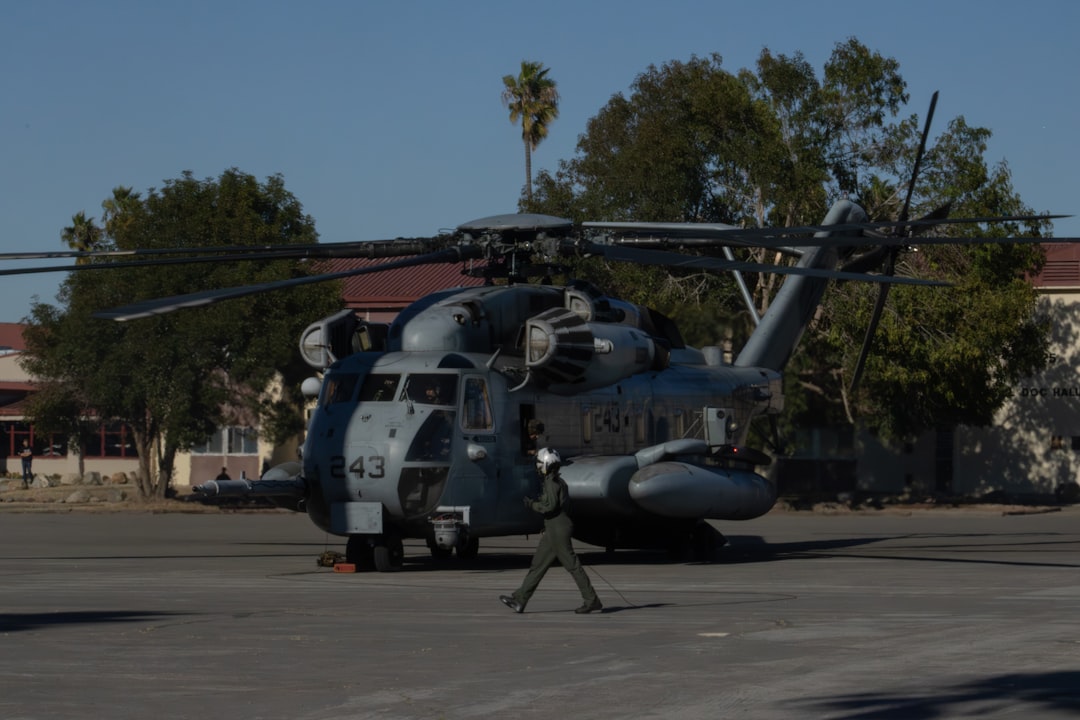Aeronautical engineering is a specialized branch of engineering that focuses on the design, development, testing, and production of aircraft and related systems. This field encompasses a wide range of activities, from the initial conceptualization of an aircraft to its final assembly and operation. Aeronautical engineers apply principles of physics, mathematics, and material science to solve complex problems associated with flight and aerodynamics.
They work on various aspects of aircraft, including propulsion systems, structural integrity, avionics, and control systems, ensuring that these machines are safe, efficient, and capable of performing their intended functions. The discipline of aeronautical engineering is deeply intertwined with the principles of fluid dynamics and thermodynamics. Engineers in this field must understand how air interacts with solid objects, particularly at high speeds and altitudes.
This knowledge is crucial for optimizing aircraft performance and fuel efficiency. Additionally, aeronautical engineers often collaborate with other engineering disciplines, such as mechanical and electrical engineering, to create integrated systems that enhance the overall functionality of aircraft. The field is not only limited to traditional fixed-wing aircraft but also extends to helicopters, drones, and even spacecraft, making it a dynamic and evolving area of study.
Key Takeaways
- Aeronautical engineering focuses on the design, development, and maintenance of aircraft and related systems.
- Graduates have diverse career options including aerospace design, manufacturing, research, and testing roles.
- The curriculum covers subjects like aerodynamics, propulsion, materials science, and avionics.
- Key skills include strong analytical abilities, problem-solving, teamwork, and proficiency in mathematics and physics.
- Internships, research projects, and staying updated on industry innovations are crucial for academic and professional success.
Career Opportunities with a Bachelor’s in Aeronautical Engineering
Graduates with a bachelor’s degree in aeronautical engineering have a plethora of career opportunities available to them across various sectors. One of the most prominent career paths is in the aerospace industry, where engineers can work for major manufacturers such as Boeing, Lockheed Martin, or Airbus. In these roles, they may be involved in designing new aircraft models, improving existing designs, or conducting research to develop innovative technologies that enhance flight safety and efficiency.
The aerospace sector is known for its competitive salaries and opportunities for advancement, making it an attractive option for many graduates. Beyond traditional aerospace companies, aeronautical engineers can also find rewarding careers in government agencies such as NASA or the Federal Aviation Administration (FAA). These positions often involve research and development projects aimed at advancing aviation technology or ensuring compliance with safety regulations.
Additionally, aeronautical engineers may work in the defense sector, contributing to the design and development of military aircraft and unmanned aerial vehicles (UAVs). The versatility of a degree in aeronautical engineering allows graduates to explore roles in academia, consulting firms, or even entrepreneurial ventures focused on innovative aerospace solutions.
Curriculum and Coursework for a Bachelor’s in Aeronautical Engineering

The curriculum for a bachelor’s degree in aeronautical engineering is designed to provide students with a solid foundation in both theoretical knowledge and practical skills. Core courses typically include subjects such as fluid mechanics, thermodynamics, materials science, and structural analysis. These foundational courses are essential for understanding the principles that govern flight and aircraft design.
In addition to these core subjects, students often take specialized courses that focus on areas such as propulsion systems, avionics, and flight dynamics. Hands-on experience is a critical component of the aeronautical engineering curriculum. Many programs incorporate laboratory work and design projects that allow students to apply their theoretical knowledge in practical settings.
For instance, students may participate in wind tunnel testing to study aerodynamic properties or engage in computer-aided design (CAD) projects to create detailed models of aircraft components. Furthermore, many universities offer capstone projects where students work in teams to design and build a prototype aircraft or system, providing invaluable experience in project management and teamwork.
Skills and Qualities Needed for Aeronautical Engineering
| Skill/Quality | Description | Importance Level | Application in Aeronautical Engineering |
|---|---|---|---|
| Strong Analytical Skills | Ability to analyze complex systems and data | High | Designing and testing aircraft components and systems |
| Mathematics Proficiency | Understanding of calculus, algebra, and differential equations | High | Modeling aerodynamics and structural mechanics |
| Problem-Solving Ability | Identifying issues and developing effective solutions | High | Troubleshooting design and manufacturing challenges |
| Attention to Detail | Precision in design and testing processes | High | Ensuring safety and compliance with regulations |
| Creativity | Innovative thinking for new designs and improvements | Medium | Developing advanced aircraft technologies |
| Teamwork | Collaborating effectively with multidisciplinary teams | High | Coordinating with engineers, technicians, and manufacturers |
| Communication Skills | Clear documentation and presentation of technical information | High | Reporting findings and collaborating with stakeholders |
| Knowledge of Materials Science | Understanding properties of metals, composites, and alloys | Medium | Selecting appropriate materials for aircraft parts |
| Computer-Aided Design (CAD) Skills | Proficiency in CAD software for designing components | High | Creating detailed 3D models and simulations |
| Understanding of Aerodynamics | Knowledge of airflow and its effects on aircraft | High | Optimizing aircraft performance and fuel efficiency |
To excel in aeronautical engineering, students must cultivate a diverse set of skills and qualities that are essential for success in this challenging field. Strong analytical skills are paramount; engineers must be able to assess complex problems, interpret data, and develop effective solutions. This analytical mindset is complemented by proficiency in mathematics and physics, as these subjects form the backbone of aeronautical engineering principles.
Additionally, attention to detail is crucial when designing aircraft components or conducting safety assessments; even minor errors can have significant consequences in aviation. Effective communication skills are also vital for aeronautical engineers. They must be able to convey complex technical information clearly to colleagues, stakeholders, and clients who may not have a technical background.
This includes writing detailed reports, creating presentations, and collaborating with multidisciplinary teams. Furthermore, adaptability is an important quality in this rapidly evolving field; engineers must stay abreast of new technologies and industry trends to remain competitive. A passion for innovation and a commitment to lifelong learning will serve aspiring aeronautical engineers well throughout their careers.
Internship and Research Opportunities for Aeronautical Engineering Students
Internships play a crucial role in the education of aeronautical engineering students by providing them with real-world experience that complements their academic studies. Many universities have established partnerships with aerospace companies and government agencies that offer internship programs specifically tailored for engineering students. These internships allow students to work alongside experienced professionals on actual projects, gaining insights into the day-to-day operations of the aerospace industry.
For instance, an intern at a major aircraft manufacturer might assist in testing new materials or analyzing flight data from recent test flights. Research opportunities are also abundant for aeronautical engineering students. Many universities have dedicated research labs focused on various aspects of aerospace technology, such as propulsion systems or advanced materials.
Students can participate in faculty-led research projects or pursue their own independent studies under faculty supervision. Engaging in research not only enhances students’ technical skills but also fosters critical thinking and problem-solving abilities. Moreover, presenting research findings at conferences or publishing papers can significantly bolster a student’s resume and open doors for future career opportunities.
Graduate School Options for Aeronautical Engineering

For those looking to further their education beyond a bachelor’s degree in aeronautical engineering, numerous graduate school options are available. Pursuing a master’s degree allows engineers to specialize in specific areas such as aerospace systems engineering, propulsion technology, or avionics. Graduate programs often emphasize advanced coursework and research opportunities that enable students to delve deeper into their chosen fields.
For example, a master’s program might include courses on computational fluid dynamics or advanced materials for aerospace applications. In addition to master’s degrees, some graduates may choose to pursue doctoral studies in aeronautical engineering or related fields. A Ph.D.
program typically involves rigorous research requirements and culminates in a dissertation that contributes new knowledge to the field. Doctoral graduates often pursue careers in academia as professors or researchers but can also find opportunities in high-level positions within industry or government agencies. Graduate education not only enhances technical expertise but also provides valuable networking opportunities that can lead to influential positions within the aerospace community.
Industry Trends and Innovations in Aeronautical Engineering
The field of aeronautical engineering is continuously evolving due to advancements in technology and changing industry demands. One significant trend is the increasing focus on sustainability within aviation. As concerns about climate change grow, aeronautical engineers are tasked with developing more fuel-efficient aircraft and exploring alternative energy sources such as electric propulsion systems or biofuels.
Innovations like hybrid-electric aircraft are being researched to reduce emissions while maintaining performance standards. Another notable trend is the rise of unmanned aerial vehicles (UAVs) or drones. These technologies have expanded the scope of aeronautical engineering beyond traditional manned aircraft applications.
Engineers are now exploring UAVs for various uses ranging from commercial delivery services to agricultural monitoring and disaster response operations. The integration of artificial intelligence (AI) into UAV systems is also transforming how these vehicles operate autonomously while enhancing safety features through advanced navigation systems.
Tips for Success in a Bachelor’s in Aeronautical Engineering Program
Success in a bachelor’s program in aeronautical engineering requires dedication and strategic planning. One essential tip is to develop strong time management skills; balancing coursework with projects and extracurricular activities can be challenging but is crucial for maintaining academic performance. Creating a structured study schedule that allocates time for classes, assignments, and personal study can help students stay organized and focused.
Additionally, actively seeking out opportunities for hands-on experience is vital. Engaging in internships or participating in student organizations related to aerospace can provide practical insights that enhance classroom learning. Networking with professors and industry professionals can also open doors for mentorship opportunities or job placements after graduation.
Finally, cultivating a mindset of curiosity and resilience will empower students to tackle challenges head-on while fostering a lifelong passion for innovation within the field of aeronautical engineering.




